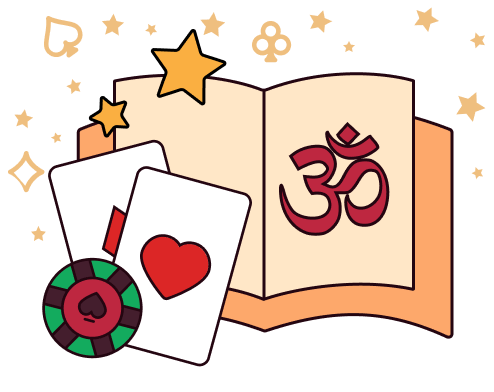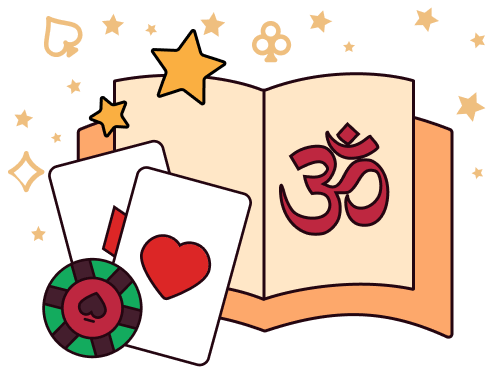Understanding The Gambling Laws And Regulations In India Thoroughly

Indians are expressing pessimistic views about allocating huge taxes on gambling. The entertainment sector is expensive today. It falls under a costly tax bracket that changes yearly when the budget is announced. It functions similarly to the Value Added Tax (VAT), used before final gaming or other entertainment purchases. Still, the involvement of thrill and excitement in gambling tempts them to pay the actual tax, or GST, affixed to gambling. The article will discuss taxation and its regulation in India and how gamblers have accepted it.
Indian Legislative Framework that the Indian Government leverages
In the Indian constitutional rulebook, the seventh schedule states that every jurisdiction of India is responsive to design its regulation for gambling. The top-notch authorities approve every casino game. Malta Gaming, Curacao Gaming, and Gibraltar Commission are the renowned gambling authorities regulating online casino games in India to ensure safety and security. Noting this, one can be sure of the fact that gambling is entirely legal in India.
Some points state how India has carefully designed the taxation model, where some have become obsolete, and some are new. They are-
Public Gambling Act: The gambling regulation body that became effective on 25th January 1867 was functional to obligate public gaming and kept public gambling in effect. It is still in use as a foundation of gambling levy requirements.
Income Tax Act: It defines the gaming categories and states the tax brackets liable to income levy.
The Prevention of Money Laundering Act: The legislative framework declares the actual location of gaming companies and players. This states-
i) All gambles, both residents and non-residents, should add the annual real-money income on their annual tax form.
ii) If you earn any income generated in Indian casinos, foreign platforms are charged for any taxes in India.
iii) Everyone has to pay a flat 30%, levied on the amount above Rs. 10,000 annual minimum. An income tax rate assessed in 2023-24 on net income from gambling.

Taxation Amended on the Accurate Commutation of Winnings from Online Gambling
The Central Board of Direct Taxes has structured the Income Tax rules to streamline the calculation of winnings to improve tax compliance. Furthermore, the Finance Bill of 2023 paved the way to make some changes in gambling legislation, giving special treatment to online games for the TDS collection. People who are gambling every day and gaining massive payouts have to pay these taxes.
i) In this context, Section 194 BA deals with the TDS of 30% deducted from the net winnings at the end of the fiscal year.
ii) Section 115 BBJ of the income tax rulebook follows that tax would be charged at 30% on net winnings for the previous fiscal year.
Furthermore, the amendment of the new rule whispers differently. However, it says that the net taxable earnings accumulated per year would be subtracted from the withdrawn amount of the user account. Therefore, the withdrawal amount is identical to the closing balance, a summation of non-taxable deposits, and the opening balance.
For example, you have deposited Rs.1,000 and accumulated a gross winning of Rs.40,000 from a casino online. In such a case, TDS will be deducted from your winning by the casino itself on Rs. 39,000 (Rs. 40,000 - Rs. 1,000). Alongside this, the government would deduct the amount separately. You will pay a tax of Rs. 11,700, and a remaining portion of Rs. 27,300 will be credited to your account as a winning potential. It is quite obvious that big winnings will attract a surcharge. Cess is added, and it's calculated by combining tax and surcharge. For example, the tax calculation on the win of Rs 50 lakhs is 30% + 0.10×30% + 0.04x(30% + 0.10×30%) = 34.32%.
Presently, the GST regime differentiates casino games on two vital aspects. Skill-based online games versus chance. The new rules infuse non-taxable deposits. It means even the borrowed income will also extract GST taxes when gambled. The rules also include taxes on income earned from bonuses, referral bonuses, incentives, etc.
What Indirect Taxes are Due on Gambling Income
One thing that the Indian government would not pardon is the GST tax levied on the winnings of online gambling. Casinos in India are nestled in the beautiful places of India, attracting tourists to showcase its beauty and simultaneously offering gambling. States like Goa, Delhi, and Sikkim are very popular for gambling. Gambling is legal and supervised in these states by their laws and regulations. On 1st July, the people of India were introduced to the name GST by the government, which swiped the pockets of common people in the name of privilege. Online gaming and horse racing should be added in Schedule III of the constitution as taxable actionable claims.
GST is defined as a unified tax system known as the Goods and Service Tax, which came into existence in 2015 and was announced in the budget of that respective year. It aimed to replace multiple indirect taxes on goods and services that Indians had to pay before being levied by the Central and State Governments, sharing the authority on the subject. The recommendation of the 50th GST Council meeting says that 28% tax is charged uniformly in online gambling at full face value. Whenever you play any casino games, like slots, roulette, or poker, you must also pay the said tax to the government. The same tax value will be overviewed by the Income tax department shortly.
Where Every Information about Gambling and Taxation is Noted
Regardless of their monetization model, GST is an obstacle for 'desi' gamblers. However, taxation helps in the economic growth of India. It is extracting money from offshore websites and foreign mobile apps in the name of GST. Thinking about it, the Centre insists gamblers pay the 28% tax for playing games depending on company revenue.
In May 2022, 19.2% of games were downloaded by the gambler. It can be a hasty step for gamblers for whom taxation has become a burden. See the difference here. In 2021, 390 million online gamers downloaded casino games and played them. It can be the impact of the infusement of the increased GST levied on casino games. But India is very strict about its laws and regulations, thus you have to follow the tax regime despite undue objections from the gambler's side.
Gamblers should showcase their every transaction on casino accounts based in India. How is it possible? Linking the account with the Aadhaar/PAN Card of both parties will make it possible.
Although income earned from gambling ejects as an "investment" by some users who adorn gambling and believe it has cultural implications. Informatively, casino gaming losses are not tax-deductible, which is also stated in Section 80C of the ITC for skill-based games.
When an RMG platform gives the winning to the gamblers, it is the responsibility of gamers to follow Section 115BB annual tax return rules.
Is there any Income Tax Exemption for Poor Gamblers
Winning a substantial amount of money from any legal game of chance, a deduction of 24% from the total winning amount will occur, and this act will be prescribed on a given IRS Form W-2G to record the transaction. This substantial amount can be Rs 1,200 or more accumulated from winning on slot machines or bingo games or for sweepstakes, wagering pools, and lotteries. The Centre and the State income tax department have embodied a vast tax landscape from which no one can escape by dodging it.
Exempting income tax is not a reflection of responsible gambling of punters, but the extended financial burden is compelling them to exempt it. There are a few ways to reduce the tax burden on gambling. Utilizing the benefits of house rent allowance, home loans, etc, can reduce the tax levied by the Income Tax Act. However, it does not apply to online betting. Regardless, earning net winnings below INR 100 monthly is not taxable. TDS is only charged when it reports a net win withdrawn from a casino's account exceeds this limit at the end of the fiscal year.

Conclusion
Reviewing the EPWA survey, 60 out of 100 online gamers will discontinue playing online games. Is it possible? No, your mind is foreseeing something else. Yes, gambling is something that cannot be stopped. Punters' urge for it cannot be dismissed. Gambling is an act that gives fun to people; they spend time earning money while relishing the moment. If you're fond of gambling, step ahead by registering at online casinos in India, which are vast in size and offerings. Make a cheerful gambling!
Related articles


Akil Khan
•March 21, 2024
In casinos, we often hear phrases like good luck and good fortune. Not surprising, really, given how the majority of casino games are based primarily on chance, though some would claim that success is also down to mathematics and algorithms.
In any case, luck plays a crucial role in gambling, and many gamblers will have their own rituals they perform before games or even lucky charms they carry to improve their chances of winning.
Hinduism, one of the oldest practising religions in the world, believes in positive and negative energy, which could define your moves and outcomes. Furthermore, there are several ways one can channel these energies, whether through prayer or certain objects such as charms or symbols. We shall discuss these in more detail below.


Akil Khan
•March 21, 2024
Whether you like it or not, luck plays a crucial role in gambling. And while many would argue that it’s an unreliable force, for many Indians, the ancient tradition of Vedic astrology offers a way to understand how luck works in the universe and how one could potentially manipulate it to work in one’s favour.
Vedic astrology (known as Jyotish in Sanskrit) is the practice of studying planetary positions, celestial influences, and karmic patterns to understand how these influence and shape human lives and destinies.
When it comes to gambling, some Indians look to Vedic astrology to boost their chances of success. By analysing astrological charts and horoscopes, and identifying cosmic connections, gamblers seek to find the most advantageous time to gamble, looking for lucky combinations of numbers, or even charms and rituals to help improve their chances.
Let’s look at this more closely:
Planetary configurations
"Muhurtha", an essential principle of Vedic astrology, indicates the opportune time to partake in certain activities based on planetary configurations. It also highlights when best to avoid certain activities. So, in the case of gambling, a player would wait for a favourable Muhurtha to maximise their chances of success.
Presence of the planets
Vedic astrology focuses on nine “grahas”, which are collectively referred to as the “navagrahas” (nava meaning nine). They include the sun (Surya), moon (Chandra), Mars (Mangala), Mercury (Budha), Jupiter (Brihaspati), Venus (Shukra), Saturn (Shani), Rahu (north node of the moon), and Ketu (south node of the moon). According to Vedic astrology, the planet Venus offers luxury and Jupiter provides immense wealth. A conjunction of Jupiter and Venus unafflicted with the moon is therefore said to bring good luck and prosperity.
Birth charts
Many Indians strongly believe in analysing their birth chart in every aspect of their life. This comes from Vedic astrology, which argues that the alignment of different celestial bodies at your birth can provide invaluable insights. In the case of betting, it could highlight a person’s gambling and risk-taking tendencies and subsequent strategies they could employ to maximise their chances of winning, translating into profits and success.
Astrology and numerology
Hindus love to rely on their favourite numbers, particularly when it comes to gambling, and generally prefer odd numbers over even. Seven and eight are considered auspicious numbers, representing success and prosperity. Many Hindus also use these numbers at the time of Diwali when, in some houses, gambling is a ritual. Another lucky sequence of numbers in Hinduism is 786, representing the Trinity of Brahma, Vishnu, and Shiva.


Akil Khan
•March 1, 2024
Casino games, poker and sports betting are becoming popular among Indian gamblers, with the ever-evolving digital landscape and higher penetration of the internet and mobile devices causing revolutionary change.
Statista reports that in 2024, India's online gambling market will hit $2.9 billion, driven by the increase in smartphones, with everything from slots and table games to rummy and Teen Patti available to play on mobile.
Today, India has over 900 million internet users, 40% of whom have gambled on online gambling platforms at least once. So, not only are brick-and-mortar casinos in states such as Goa, Sikkim, and Daman booming, but regulated online casinos are also fast becoming popular.
Fantasy sports are thriving, with millions of young Indian players signing up to sites such as Parimatch and Dream11 to play cricket, hockey, football and kabaddi, among other popular sports. Learn more about casinos' impact on Indian youth in recent years and why people are shifting more towards this billion-dollar sector after the pandemic.